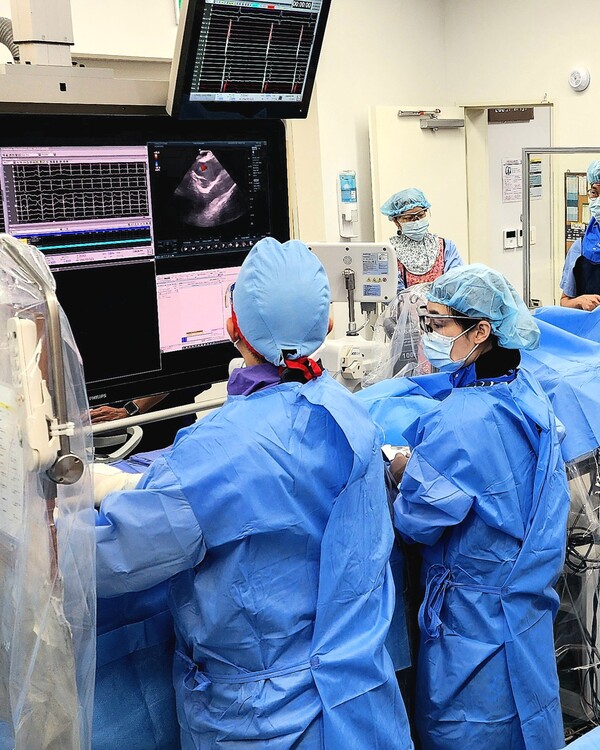Kangbuk Samsung Hospital said on Wednesday that it successfully performed pulsed field ablation (PFA) on a patient with atrial fibrillation.
Atrial fibrillation, a type of arrhythmia, is a condition characterized by an irregular heartbeat caused by issues in the atria. If left untreated, it can lead to severe complications such as cerebral infarction and heart failure.

Existing treatments for atrial fibrillation, such as radiofrequency electrode ablation and cooling balloon ablation, have been associated with side effects. These include pulmonary vein stenosis, diaphragmatic nerve palsy, and esophageal perforation, caused by applying heat or cold to the tissues surrounding the heart.
As a result, the need for a new treatment emerged, leading to the adoption of PFA as a next-generation therapy for atrial fibrillation. Actively practiced in the United States, Europe, and Japan, PFA was recognized as a new medical technology by the National Evidence-based Healthcare Collaborating Agency (NECA) in December.
PFA is a technique that uses ultra-short high-voltage pulses to target and disable arrhythmia-causing cardiomyocytes selectively. It is reported to have fewer side effects and provide better long-term outcomes compared to existing treatments. Additionally, PFA offers several advantages, including a shorter procedure time, faster patient recovery, and reduced radiation exposure for both the patient and the operator.
On Jan. 15, Professor Kim Min of the Department of Cardiology at Kangbuk Samsung Hospital successfully performed PFA on a male patient with atrial fibrillation in his 50s. The procedure was shortened in time, improved in accuracy, and minimized radiation exposure, and, significantly, it was performed consciously and calmly without general anesthesia. The patient is now fully recovered with no procedure-related complications.
“PFA can overcome the limitations of existing treatments. This is very promising news for patients with atrial fibrillation,” Kim said.

